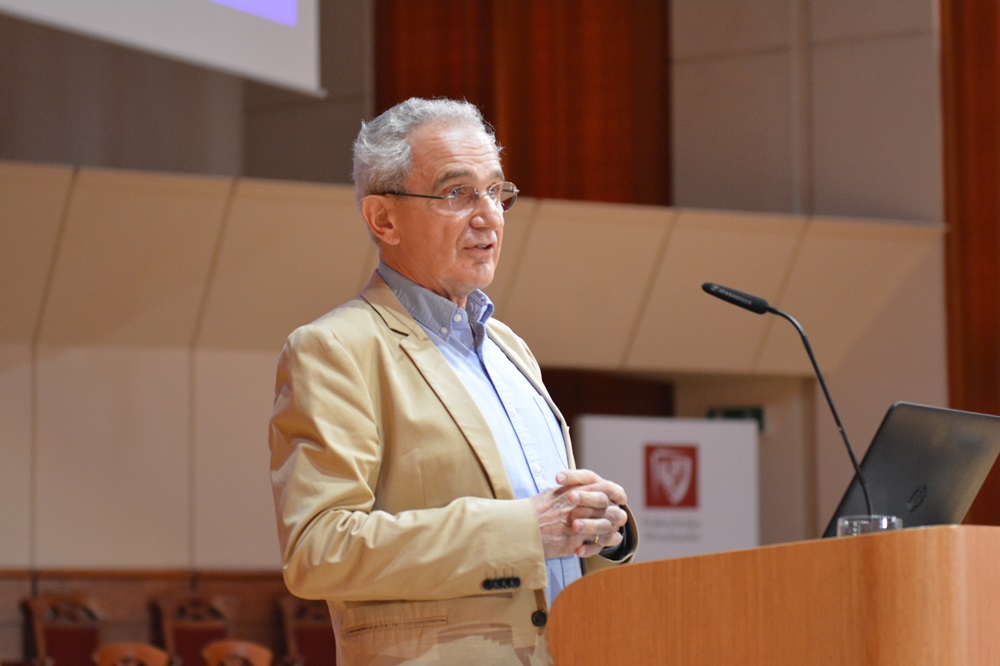YOUR BROWSER IS OUT-OF-DATE.
We have detected that you are using an outdated browser. Our service may not work properly for you. We recommend upgrading or switching to another browser.
Date: 12.06.2024
Prof. Peter Gollwitzer from New York University was a guest of the Interdisciplinary Scientific Seminar at WUST. He is a world-famous German researcher in the field of psychology, creator of the implementation intentions theory.
 The lecture "Goals, mindsets and plans: Providing a context for social cognition" took place on June 26 in the auditorium of the Wrocław University of Science and Technology (Wybrzeże Wyspiańskiego 27, building A-1).
The lecture "Goals, mindsets and plans: Providing a context for social cognition" took place on June 26 in the auditorium of the Wrocław University of Science and Technology (Wybrzeże Wyspiańskiego 27, building A-1).
Peter M. Gollwitzer has worked in academic institutions in the US and in Germany (universities and research institutes such as the Max Planck Institute for Psychological Research), heading various interdisciplinary research groups.
The common theme of his research is the effective self-regulation of thought, affect, and action. His research methods reach from conducting laboratory studies using cognitive task paradigms (e.g., executive function tasks) and taking neuro-physiological (EEG, fMRI, MEG) and behavioral measures, to performing field experiments and intervention studies with clinical samples (e.g., children with ADHD, stroke patients, individuals suffering from addictions or anxiety disorders).
He has developed various models of self-regulation: the Theory of Symbolic Self-Completion (with Robert A. Wicklund), the Rubicon Model of Action Phases (with Heinz Heckhausen), the Auto-motive Model of Goal Striving (with John A. Bargh), the Mindset Theory of Action Phases, and a Theory of Planning that specifies implementation intentions (if-then plans) as a powerful self-regulation tool.
Our site uses cookies. By continuing to browse the site you agree to our use of cookies in accordance with current browser settings. You can change at any time.